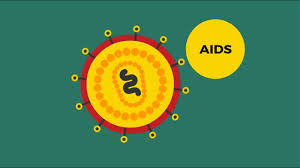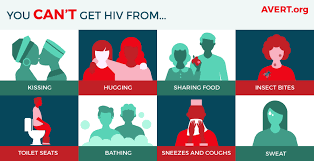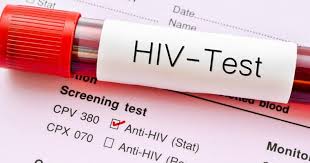Is HIV/AIDS the Forgotten Disease

Is HIV/AIDS the forgotten disease? For many, the answer is yes. The new diseases of the month, such as Swine flu and West Nile, are grabbing the headlines leaving this deadly virus lost in the media. With new ways to manage the disease, people are living longer. The virus is on the rise in the African American community. This increase is hitting the African American community harder than the rest of the country. The costs of health insurance, the social stigma behind the disease, and the taboo on condom use have helped the virus spread. HIV/AIDS does not discriminate between races. Despite that African Americans make up less than 13% of the total population, they are over half of the population with the disease. Groups such as the National Association for the Advancement of Colored People (NAACP) are devoted to changing the view of the disease. President Obama has made this epidemic a part of his health care agenda for his presidency.
Human Immunodeficiency Virus
Human Immunodeficiency Virus (HIV) is a virus that attacks the immune system eliminating the CD4 cells leading to a deficiency in the immune system called Acquired Immunodeficiency Syndrome (AIDS). Essentially HIV reduces the body’s ability to fight off diseases by killing the cells that activate the immune system. The virus (HIV) kills off enough of the CD4 cells lowering the body’s ability to defend its self. This effect is called AIDS. This syndrome does not kill a person directly. What AIDS does is it removes the ability to fight off other diseases such as certain cancers and pneumonia. The virus (HIV) can be transmitted by blood and through unprotected contact with bodily fluids generated by sexual contacts such as semen, pre-seminal fluid, vaginal fluids, and rectal mucous. The virus also can be transmitted in breast milk.

HIV Does Not Discriminate
HIV does not discriminate. Any race or gender exposed to the virus can come down with it. HIV is disproportionately affecting the African American community. In the 2010 Census, the Africa American population was under 13% of the total population of the United States. According to the Centers for Disease Control and Prevention (CDC), 46% of the entire people living with HIV are African American in 2007. 45% of new infections are Africa American (as of 2007).
Causality between unemployment and HIV/AIDS rates in the African American Community.
The unemployment rate in America is a little more than nine percent, but it is more than 16% in the African American community. This rate grows higher for African American males at 18% to nearly half the population of African Americans between the ages of 16 to 19. This is despite African Americans make up fewer than 13% of the labor market. "We also have an economy that isn't creating jobs for people with low levels of education, and Blacks are heavily concentrated in that group. All of this points to a historical pattern of discrimination, which puts Blacks in a situation where they're the first to experience downturns in the economy" (Jones, 2011). “Almost 25% of Blacks live in poverty compared to 9% of Whites. According to a study by the U.S. Department of Agriculture, nine out of every 10 Black Americans who reach the age of 75 spend at least one of their adult years in poverty” (Wilson, 2010, para. 3).
Poverty is linked to the unavailability of health care. This lack of health care is related to both HIV/AIDS testing and the spread of the disease. Because African Americans are more likely to live in poverty than other races, they are exposed to HIV/AIDS at higher rates than the different rates. “The rate of AIDS diagnoses for black adults/adolescents was ten times the rate for whites and nearly three times the rate for Hispanics” (Bryson, 2010, p. 2).

The Stigma of HIV/AIDS
The stigma of HIV/AIDS as a solely an LGBTQ issue has both prevented the testing but also kept the people suffering in hiding. The negative attitude toward both people with HIV and the use of condoms. “Associated with African American women's HIV risk is poor health status and poverty (Logan, Cole, & Leukefeld, 2002), the imbalance in male-female sex ratios and negative attitudes towards condom use in the Black community” (Bryson, 2010, p. 3). In the past Christian churches in general taught that homosexuality is a sin and not acceptable in society. “Indeed, theologically-driven homophobia, aided by black nationalist ideology, supports a strong and exaggerated sense of masculinity within black communities that, along with homophobia, take a significant but generally unexamined psychic and social toll on people’s lives” (Ward, 2005, p. 494).
To Address the Problem
Addressing the problem of HIV/AIDS in both the African American community as well as the country, the stigma behind the disease must be addressed. This includes the need to reeducate the public on how HIV works and the necessary steps that can be done to avoid the virus. In marketing a new public service campaign, the agency or health care facility will need to address the perception of HIV/AIDS in public. One opinion is that the disease is under control, and on the decline, this is not the reality in the African American community. This includes a need for early education on prevention, including eliminating the stigma on condoms. A robust direct marketing campaign with television, radio, billboard, and magazine campaign directed at both preventing the disease and regular testing the African American community is twice as likely to be tested as other races. By connecting organizations that have the same goals, an integrated, coordinated message can be developed.
The problem is the cost of testing and the state regulations requiring pretesting counseling. This counseling can turn away people who want to know if they may have the virus but do not wish to discuss their sexual behavior with a stranger. By eliminating the need for pretesting counseling in favor of advice for those that test positive fears of judgment can be lessened. With the right sponsoring, including government grants and the Centers for Disease Control and Preventions, help testing can be made free and as confidential as possible.

The Problem of HIV/AIDS
The entire community is addressing the problem of HIV/AIDS in the African American community. This includes programs to change the attitude toward both the disease, ways to prevent it, and a theological shift in the church. In 2010 the National Association for the Advancement of Colored People (NAACP) started a tour of 10 American Cities where HIV/AIDS rates among African Americans are high to promote a dialog about the disease. The NAACP has labeled HIV/AIDS as a national priority for their organization. This includes a program called “Dialogue with the Black Church,” a two-year program to help address the problem and create a plan for dealing with the epidemic. On each stop of the tour, there was a round table discussion with members of the public. Some of these community churches had no formal programs. Others had extensive programs. The goal is to develop a change in attitudes toward the disease and help create a national response. Unlike prior presidencies, President Barack Obama has developed a national plan for dealing with the epidemic included in his health care reform act. In the past, the disease has been treated as a cause of an effect of bad behavior, a punishment. Part of that, the actual problems are not being addressed poverty, drug use, and discrimination.
With the African American community developing a plan for dealing with the epidemic, the chances of this disease controlled have improved. The challenge is to remake the face of HIV/AIDS to show the real face of the disease. Help the people deal with the people with the disease and change the approach people have in their personnel lives. A good strategy for this would be to deal with crippling poverty and unemployment in the African American community. With the downward slide to the economy is hitting the African American community disproportionately in comparison to the rest of the country. Poverty is linked to drug use and other risky behavior. These behaviors can lead to a higher chance of obtaining the disease.
References
Bryson, B. (2010). THE PROMISE OF OBAMA: PUBLIC POLICY, HIV/AIDS, AND
AFRICAN AMERICAN Women Race, Gender & Class, 17(3/4), 241-254.
Center for Disease Control and Prevention (2010) HIV among African Americans Retrieved
from http://www.cdc.gov/hiv/topics/aa/
Jones, J. (2011). African-American Unemployment Rate Climbed in August. Retrieved from
http://www.bet.com/news/national/2011/09/02/labor-department-releases-august-unemployment-figures.html
Nunn, A., Zaller, N., Cornwall, A., Mayer, K., Moore, E., Dickman, S., Beckworth, C., and
Kwalwa, H. (2011, April) Low Perceived Risk and High HIV Prevalence Among a Predominantly African American Population Participating in Philadelphia's Rapid HIV Testing Program. AIDS Patient Care & STDs, 25(4), 229-235.
Ward, E. (2005, Sep/Oct). Homophobia, hypermasculinity and the US black church Culture,
Health & Sexuality, 7
(5), 493-504.
Wilson, P. (2010). Race Matters: Race, Poverty and AIDS in Black America. Retrieved from
http://www.rhrealitycheck.org/blog/2010/07/19/race-still-matters-race-poverty-aids-black-america
Sources Consulted
U.S. Census Bureau (2011) State & Country Quick Facts Retrieved from
http://quickfacts.census.gov/qfd/states/00000.html
U.S. Department of Health & Human Services (n.d.) What Is HIV/AIDS? Retrieved from
http://aids.gov/hiv-aids-basics/hiv-aids-101/overview/what-is-hiv-aids/
Owens, D. (2011, Summer). Faith & AIDS. Crisis (15591573), 118(3), 20-23.







